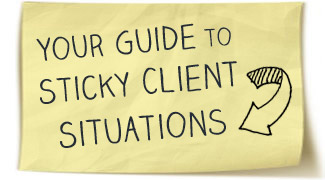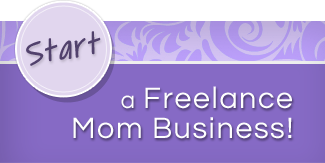
If you’re considering leaving your full-time job to start freelancing or to start your own business, there are steps you need to take to make sure your taxes are in order.
But if you’re like the majority of people, taxes are a huge pain. So it makes it even worse when you have to try and figure out all of your own business taxes, in addition to worrying about everything else associated with business ownership.
To help ease the stress, Gail Rosen, president of Gail Rosen, CPA, walked us through the introductory steps to help all women entrepreneurs understand self-employment tax requirements.
Here are her top seven tips to help you get a better grip on taxes so you can save yourself aggravation and of course, cash.
Tip 1: Choose the Right Business Structure
The first element you should give serious thought to when starting a business is the type of entity it will be – sole proprietorship, LLC, partnership or S-corporation or C-corporation.
According to Gail, it’s extremely important to understand and select the right type of entity for your business.
“So many businesses just start out quickly and they don’t know what type of entity they are or why,” said Gail. And of course, the entity that you choose has many implications that you need to be aware of, including tax implications.
If you’re not sure which entity to go with, Gail recommends that most start-up businesses begin as an LLC. She says it’s a simpler and less expensive way to begin.
In addition, if you choose an LLC, you can always incorporate later if desired. However, you cannot switch to an LLC from a corporation, so Gail says it’s important to do the proper research and make the right choice initially.
“An LLC also gives you some liability protection that a sole proprietorship or partnership does not give you,” said Gail.
For example, with LLCs, the owners are protected from personal liability for business debts. With sole proprietorships, the owner is responsible. You can read all of the key differences between sole proprietorships, LLCs, partnerships and corporations here.
But what about those of us who work under our own names?
Gail says that we don’t have to worry about registering if we don’t want to. But she does feel that everyone should register with the IRS and apply for a federal ID number so you aren’t using your social security number.
Also, working under your own name doesn’t mean you don’t have tax responsibilities that can include sales tax and income tax, which we’ll discuss shortly.
Tip 2: Register Your Entity
Once you know the type of entity you should be; then you need to set it up and register for the taxes you are responsible for. Gail says to make absolutely sure you know what your tax responsibilities are. Visit the hyperlinks to learn more about the tax responsibilities for sole proprietorships, LLCs, partnerships and corporations.
Tip 3: Learn How to Keep Good Records
According to Gail, knowing how to keep good records is an absolute essential, noting that most small business owners tend to prefer QuickBooks to do so.
Gail also recommends keeping a separate checkbook for business and a separate checkbook for personal use, noting that it streamlines record-keeping in both instances.
Tip 4: Find Out if You are Responsible to Collect Sales Tax
Another major thing to know is whether or not you are responsible to collect sales tax, which varies by state, Gail says. If you are responsible, here is some information to help understand the process.
Tip 5: Be Aware of Estimated Taxes
As an entity, you are responsible to pay federal and state estimated taxes if you are a sole proprietor, partnership or LLC and you have a profit.
These are due April 15th, June 15th, September 15th and January 15th.
Gail says it’s important to make sure you understand your responsibilities prior to starting your business, and you should work with an accountant that specializes in small businesses.
Tip 6: Understand Income Taxes Owed if You Aren’t an Entity
If you’re a freelancer who works under your own name, you’re still responsible for paying both self-employment and income taxes. Self-employed people pay federal taxes, state taxes, social security and Medicare (both sides of social security and Medicare since they are the employer and employee) on their net income from their business.
See here for more information on how to pay quarterly income taxes.
Tip 7: Know What is Tax Deductible
Gail says it’s very important to understand what is tax deductible prior to spending any money, so that you can keep good records of all of your expenses. Here are some items to keep good record of, and there are additional deductions noted here.
- General expenses
Basic expenses that are “ordinary and necessary” are deductible. So if you buy a calculator, computer, postage, office supplies, etc., they are deductible expenses.
- Home office
If you use a portion of a room or room exclusively for business then they might be entitled to the home office deduction which can be worth a lot of money. For more information, see Publication 587.
- Entertainment
Entertainment is 50% deductible but you must document who, what, when, where and why.
- Interest
Using a credit card to make business purchases allows you to deduct the interest and carrying charges.
- Books and legal fees
If you’re a DIY person and choose to buy books on various business practices, such as taxes, law and accounting, those costs are deductible.
- Gifts
Gifts are deductible but limited to $25 a person a year.
- Startup Costs
Did you spend money on advertising, training, and other costs associated with getting your business ready to operate? Of course you did, and these expenses can be deductible. For more information, visit SBA.gov.
- Cell phone
If you have a cell phone specifically for business, or use your personal cell phone a percentage of the time for business, that percentage is deductible as long as it’s more than 50%. Also, as of 2009, you no longer have to document each business purpose for each call.
The Bottom Line of Self-Employment Taxes
Having a good understanding of self-employment taxes is critical to getting your freelance or small business off on the right start.
Gail says that overall, it’s important to keep good records, know what is truly tax deductible and of course, have a good accountant.
By having these things in order, you’re well on your way to saving money and limiting hassle.
What other tips would you add that we missed?





